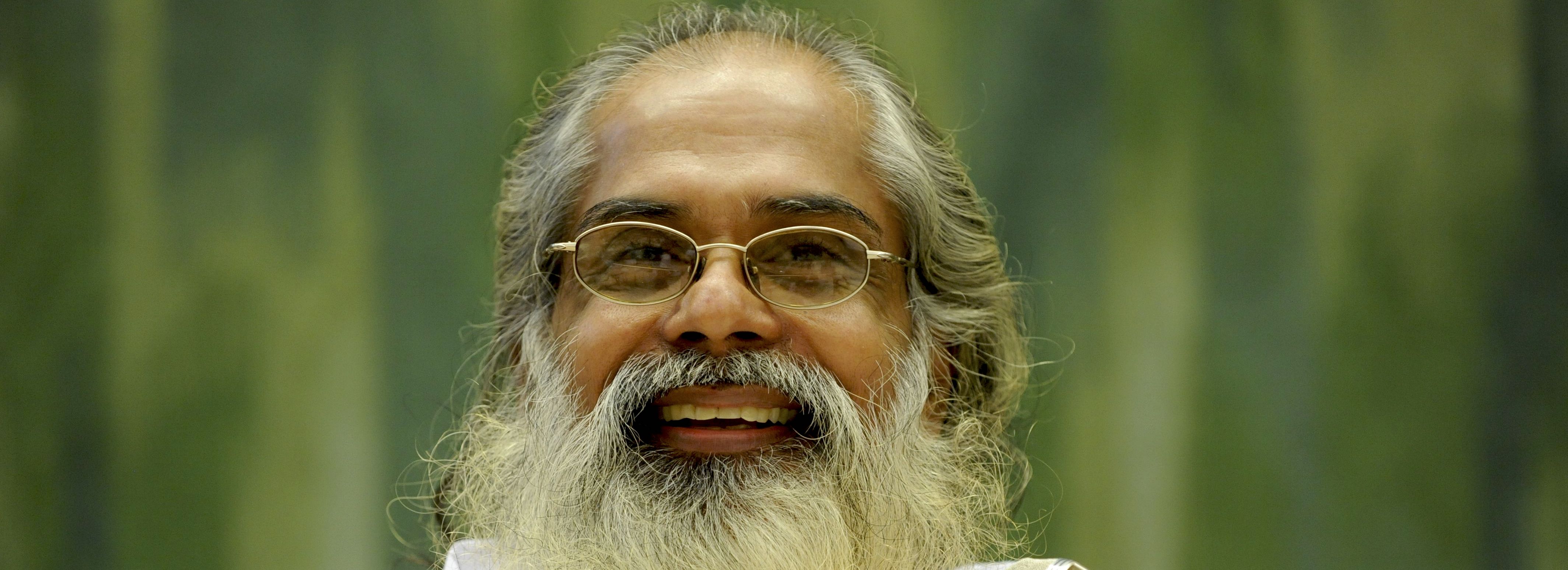Education for Total Consciousness
“True and total education should result in the complete development of the individual,
and his or her realisation of Total Consciousness.”– His Holiness Jagadguru Swami Isa
Author of Education for Total Consciousness
Having observed the deficiencies of teaching, incomplete knowledge possessed by graduates, the resultant misdirected intentions and suffering of society, His Holiness Jagadguru Swami Isa wished to find a system of education that would fit in with the modern curriculum and tendencies but grasp all the ancient techniques of true and noble education. Toward this end, His Holiness developed a philosophy as well as a teaching method.
The core of this philosophy is an integration of objective knowledge and subjective knowledge. Teaching nowadays is fully focused on only knowledge of the world around us (objects) and ignores the learner him/herself (the subject). Such lopsided education results in incomplete knowledge, resulting in a society in the throes of greed, destruction, material obsessiveness, irresponsibility, and woeful ignorance. As Mahatma Gandhi once lamented, "Nothing has saddened me so much in life as the hardness of heart of educated people." Objective education ignores the inherent relationship between the self and the universe. Knowledge has become a process of acquiring information, rather than a process of self-realization.
Students in this system learn vast measures about their own body, mind, intellect, ego, ignorance and consciousness. They understand about the delicate balance of energy that leads to their own peace and happiness, as well as others’. They perceive the interconnectedness of all things and all life, and fashion their lives in an attempt to keep them in harmony. As the great Indian author Rabindranath Tagore once said, “The highest education is that which does not merely give us information but makes our life in harmony with all existence.”
Case Studies: Understanding the different types of knowledge

The joy of learning!
- Systematically trains teacher and student to see one’s self in the outside world, and in other beings
- Produces the skills to develop complete knowledge and wisdom, and live in balance
- Improves the relationship between the teacher and student
- Brings out the joy in learning
- Imbues students with dignity, responsibility, selflessness, self respect, compassion and love of world
- Increases student concentration and efficiency
- Personalises the learning experience
- Offers a scientific and thorough way to assess student development
- Requires no change to the standard curriculum
- Can be used in any culture, language or region of the world.
Education for Total Consciousness in the classroom is relatively simple. Its beauty lies in its adaptability. There is no barrier for culture, belief, religion, region, or language. The ETC method is suitable for any age level, up to university level, and any discipline.
A trained ETC teacher is able to take any syllabus, any textbook and prepare lessons according to the ETC format. S/he engages the students in a variety of learning experiences that gives them both theoretical and practical exposure. Emphasis is given to play and research. Assessments are based on end-unit written and creative presentations, and also daily / weekly observations.
The ETC teacher makes learning come alive by:
- Responding to the individual personalities, situation, time, place and lesson to be learned;
- Cultivating the development of the whole human being; and
- Imparting a holistic integration of subjective and objective knowledge.
The joy of learning is naturally experienced through the ETC process. Lessons never become dry or burdensome to students, because everything learned is well digested and meaningful to them. Children experience greater amounts of positivity, energy, happiness, fulfillment, and confidence in this system. Profound relationships between the student and teacher are developed, as well as between the student and his/her peers, family, society, environment, nation, world, and universe. Teacher satisfaction is high.
A school implementing ETC will make decisions about the type of learning environment, teacher-to-student ratio, training of teachers, campus, playground, facilities, involvement of parents, role of the principal, examinations, programs, activities and social service to enhance all the aspects of the children’s learning.
But most profoundly, the core aspects of ETC can be practiced in any setting, therefore making it a truly universal scheme of learning. Integration of subjective and objective knowledge can happen anywhere, by one who is passionate about achieving the noblest of goals of education.

Sample teaching aid for Subjective Water and Objective Water
“Knowledge becomes absolute only when we are able to relate any gained knowledge of the physical world with the corresponding factor within us. Everything present in the world outside is present within us and the state of keeping them in harmony is the outcome of real education.”
– His Holiness Jagadguru Swami Isa
Case Studies: Understanding the different types of knowledge
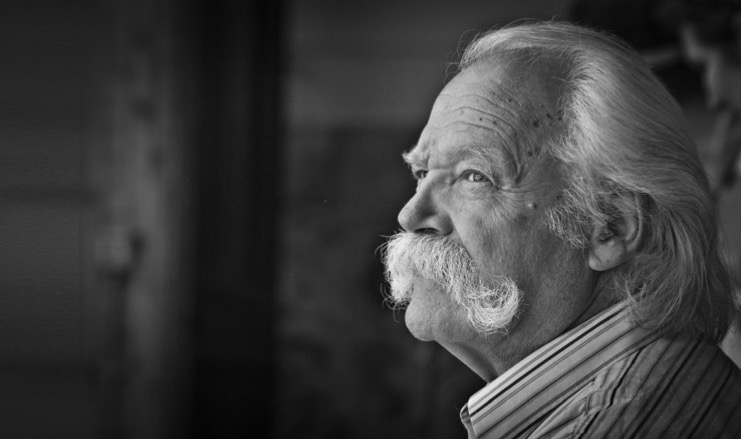
(Image for representational purpose only.)
Case Study 1. Anil is a successful businessman. He worked hard and achieved his goals through a systematic approach. He was ruthless in all ways, never considering the feelings of others except how to exploit them. But he ran an efficient office and paid his employees well, he was rich, well settled, and he even gave sometimes to charity, so everyone called him a success. He used to take his wife and children on annual sightseeing trips to other countries and would leave their houses and cars in the custody of his staff. But he found himself unable to stop worrying about the houses, the cars, and the business. When he spent time with his family, he felt pride and satisfaction… but sometimes there was a feeling of loneliness he could not explain. After some time, the growing burden of his responsibilities left him highly stressed and irritable. No one wanted to be near him, yet they made great speeches about him in public. He became unable to sleep without the aid of alcohol or pills. In his old age, he began to increasingly think about his death, wondering whether he would be rewarded in the afterlife for all of his efforts—or could it be that he had missed something important?
Anil is a tragic but typical product of modern education, what we call objective education. This type of education focuses only on transmission of knowledge about the outer world and is concerned with instructing, rather than revealing. Objective education trains young minds to think, look and investigate only the world around them, without any consideration of who and what they are and how they are related to the world. The obsession to look to the objective world for fulfillment becomes a way of life. Rather than finding happiness in the self, there is the constant habit to seek to fulfill our needs and desires with objects. Ultimately, it leads to sorrow and distress, as the hole of desire can never be filled, and the feeling of satisfaction is only momentary.
Objective knowledge has its place, and it certainly cannot be ignored in education. Modern science has achieved great heights through the acquisition of objective knowledge from the subatomic to the galactic levels. Likewise, all the various branches of knowledge are learning greater information about the universe. However, we lose our own orientation in the universe without knowledge of the self, or subjective knowledge. This type of knowledge reveals what it means to be a human being, what we are made of, and where we want to go. In an imbalanced state of education excessively focus on the acquisition of objective knowledge, we think that everything we encounter exists for our own exploitation and satisfaction of our desires. Everything we interact with, even people, become objects to us. Material success becomes the goal of life, but it fails to give us true and lasting happiness. Through objective education, we lose the basic qualities of the human being, and are plunged into sorrow.

(Image for representational purpose only.)
Case Study 2. Divya is a physicist, a wife and mother. She is an active member of her community, and often spends her free time organizing meals or medicine for the poor people in her area. No matter how long her day has been, or how many things she is doing, whenever she has cooked a meal she first looks outside to see if anyone is hungry before she takes her own. She gives them a comfortable seat, a cool glass of water, and a hearty meal. The person always goes away remembering her smile. “Have I met her before? She feels just like my own mother.” They don’t know that Divya has three degrees and a high-ranking position in the science world.
When putting herself to a task, Divya is fully involved in it, though detached from the tendency to feel pride or elation in success, or misery in failure. When Divya makes a decision, it is carefully considered from every angle with detachment and clarity. Every time a problem arises in her life, she feels it is a new chance to remove her ignorance and illuminate her life with greater truth. In moments of calm, Divya’s mind often rests in the vastness of the universe, its glory and majesty. She feels that everyone and everything is Nature itself coming to greet her and bless her. She feels love for every being, and great tenderness for those who are suffering.
Divya received an education that integrated objective and subjective knowledge, otherwise known as Education for Total Consciousness. Whatever was in the textbooks, the teachers linked the topic to a part of Divya’s self, i.e., subjective knowledge. When she learned division in mathematics, she learned about the division of her body’s cells. When she learned the names of rivers, the teachers also taught about her own circulatory system. When she studied stars and galaxies, she realized the light of her own intellect. All of the objective knowledge in the textbook was correlated to her subjective knowledge. Through this, she learned to see herself in everything, and to see the universe in herself. The delicate balance of nature revealed itself to her, thus she strove for balance in herself.
As a student she had the constant perception that she was a part of a vast and beautiful universe of energy, one that is constantly changing, and yet at the same time it is full, perfect, peaceful and infinite. She had great respect and love for her teachers, who helped her to understand herself very deeply, to perceive her weaknesses as well as her strengths, to gain the tools to overcome her weaknesses and to use her strengths in service of others. The effects of her actions on others, and others upon her--the effects of the world upon her, and her upon the world—became her constant vision. She achieved greatness in her studies and later scientific career because of her sharpness of intellect, wideness of vision, purity of emotions, and inner peace. She surrendered to the natural flow of life, and knows that she is deeply cared for.
Emerging from his lifelong keen interest in education and his own personal experiences attaining the peak of enlightenment, His Holiness Jagadguru Swami Isa developed a theory of education in the 1980’s and 1990’s by the name of Education for Total Consciousness. After many discussions with eminent educationalists that convinced them of the philosophy, Swamiji developed a methodology for implementing it in schools. The methodology includes guidelines for the teacher-student interaction, a formula for lesson planning, methods of assessment, strategies of learning, integration of creative arts, involvement of parents, etc.
In 1998, Swamiji founded a small school using the method, beginning with one class of Kindergarten. The Isa Viswa Vidyalayam is now a flourishing primary, middle and high school.
In 2000, Swami founded a charitable organization, the Isa Viswa Prajnana Trust, focusing on formal and informal education as a means of alleviating suffering. That same year, the Trust organized a National Workshop on Education for Total Consciousness, and in 2001 it organized an International Conference under the leadership of great educationalists Dr. A. Sukumaran Nair, Former Vice Chancellor of Mahatma Gandhi University-Kottayam and Dr. K. Sivadasan Pillai, the late Director of Adult and Continuing Education Department of the University of Kerala who earned wide recognition in the field of education for his teacher training manuals. Hundreds of educators have participated in these events over the years and become skilled in the art of ETC Lesson Plan preparation for Kindergarten up to post-graduate lessons. (Learn more about the Trust's education initiatives and the people involved on the Education page.)
Beginning in 2010, when the Global Energy Parliament started, ETC began getting audiences in countries such as Germany, France, UK, Spain, Sri Lanka, and Mauritius.
The Isa Viswa Prajnana Trust is pleased to note that many aspects of ETC were included in the new National Education Policy for India, including an emphasis on holistic development of learners, experiential learning, curricular integration, forms of assessment, role of teachers, optimal learning environments, etc.
Upcoming Courses
The Basics of Education for Total Consciousness
Online Certificate Course - in partnership with South Seas University
Learn the basics of how to use ‘Education for Total Consciousness’ in the classroom in this online course! The South Seas University, in partnership with the Isa Viswa Prajnana Trust, is pleased offer a teacher training certificate program for the first time as an online course.
The course provides Swami Isa’s specialised lesson plan format & methodology of assessing the learner as a whole human being, inspiration about the true role of the teacher, and methods to make teaching and learning joyful, creative, and alive.
Ideal for practicing or aspiring teachers anywhere in the world looking for new methods and inspiration, and anyone who is interested in how to empower children to flourish into happy, healthy and whole human beings.
His Holiness Jagadguru Swami Isa leads the course, with appearances by educational experts. It is ten 90-minute lessons over a five week period. Classes are held on Saturdays and Sundays.
Syllabus
Lesson 1: The Purpose of Education – Part 1
Lesson 2: The Purpose of Education – Part 2
Lesson 3: Education for Total Consciousness: Connecting Objective & Subjective knowledge – Part 1
Lesson 4 : Education for Total Consciousness: Connecting Objective & Subjective knowledge – Part 2
Lesson 5: The Scientific Foundation of ETC: The I-Theory
Lesson 6: Connecting All Disciplines With the I-Theory
Lesson 7: Lesson Planning for Total Knowledge – Part 1
Lesson 8: Lesson Planning for Total Knowledge – Part 2
Lesson 9: Assessing the Whole Human Being
Lesson 10: The Joy of Learning and Teaching – Classroom Interactions
Provide your details here to receive further information.
Education for Total Consciousness Teacher Training
Residential Camps - 2 to 4 weeks
Trivandrum, Kerala, India
Gain a full immersion in the Education for Total Consciousness at our ETC Teacher Training Camp. Learn directly under the founder of the system, His Holiness Jagadguru Swami Isa and other education experts in engaging sessions
This camp is ideal for practicing or aspiring teachers wanting to gain experience in using ‘Education for Total Consciousness’ in the classroom, and techniques to address difficult situations that we face in our work with children.
Expect lively and challenging classes in the inspiring atmosphere of Swami Isa’s ashram in Thiruvananthapuram, India. For international students.
Provide your details here to receive further information.
Newest Release: The Human Manifesto, Part 2: The Global Education Policy for Total Consciousness (2023)
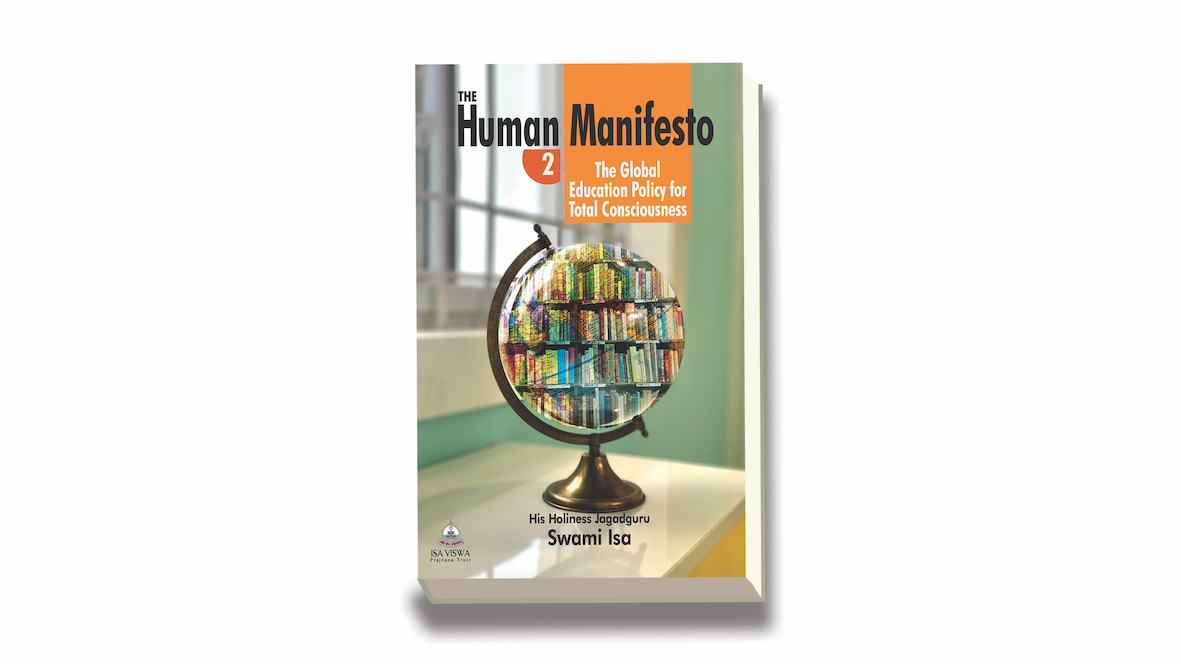
His Holiness Jagadguru Swami Isa's latest book on education is The Human Manifesto, Part 2: The Global Education Policy for Total Consciousness. This pioneering book is the first time that anyone has attempted to create a unified vision of education for the world, taking each educational system from where they are and bringing them into a universal system aimed at the highest goal of the human being: attainment of Total Consciousness.
There are numerous innovative features of Swami Isa’s proposed educational system included in the book. He introduces a new branch of science, Pranic Science into the curriculum; a new Periodic Table based on subatomic particles; a larger definition of Lifelong Learning that includes prenatal education and learning appropriate for all stages of life; and an inspiring plan for a Universal University system which brings all educational institutions in the world together under one umbrella within the next 50 years.
The book is a profound vision and a clear action plan, written for governments to be able to implement as a policy, but also will inspire and ignite anyone interested in solving the problems of today's educational systems.
As Part 2 of Swami Isa's Human Manifesto, this text includes all of the necessary content from Part 1 to be a stand-alone text, and extremely delightful read.
Published by the Isa Viswa Prajnana Trust. 2023.
Find it online in bookstores worldwide, like Amazon. Order it in India from the Dogears Bookshop.
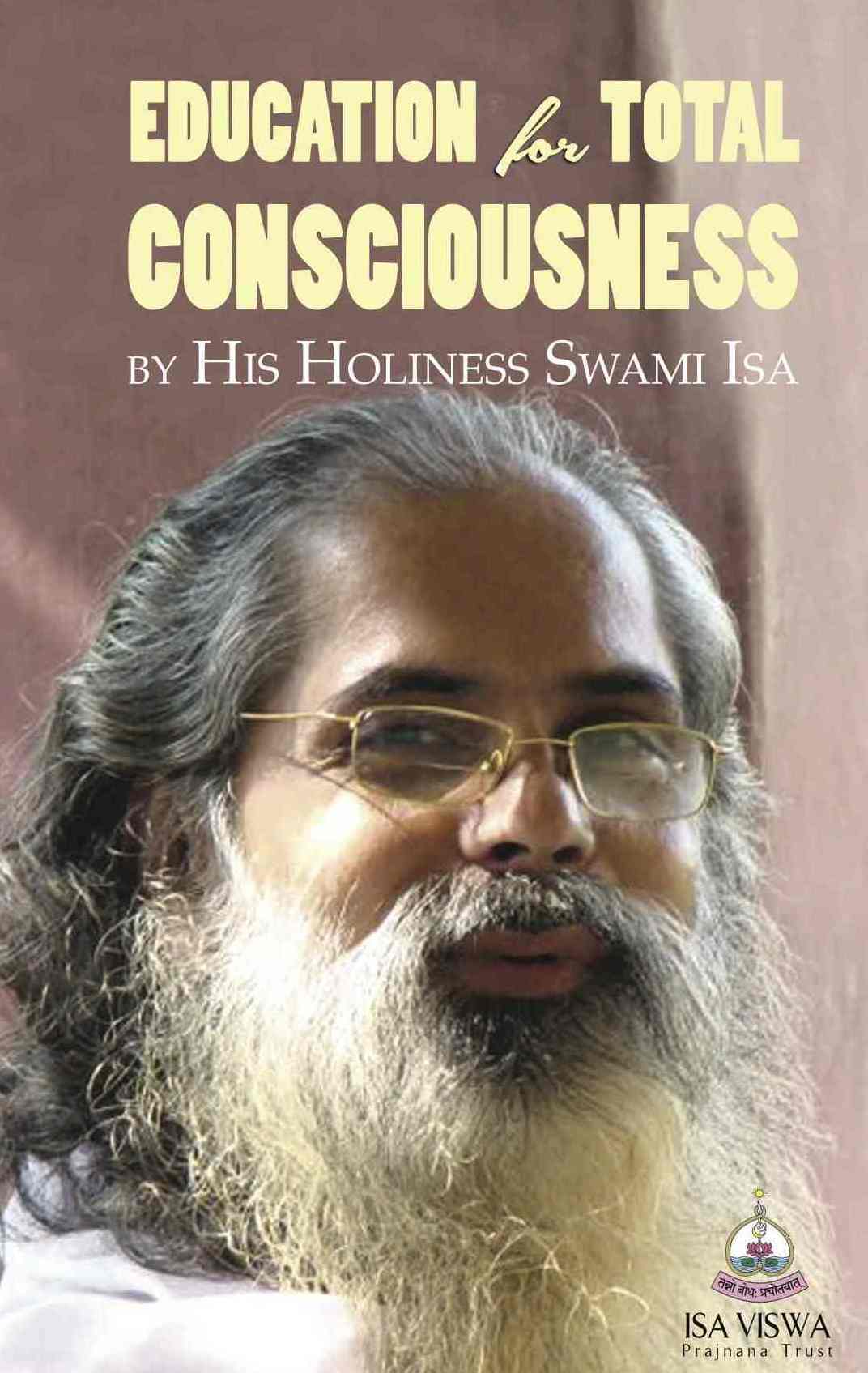 |
Education for Total Consciousness (Human Manifesto, Part 1) Published by the Isa Viswa Prajnana Trust 2016 English edition
Swami Isa describes his educational philosophy and the methodology of teaching in this beautiful text which is sure to inspire educators, parents, and anyone who is concerned with bringing up the future generations. Swamiji reveals high philosophical concepts about knowledge and its origin; the role of the student, role of the teacher, and much more. Prepare to be inspired! Download an excerpt. Order it: office(at)ivpt.org |
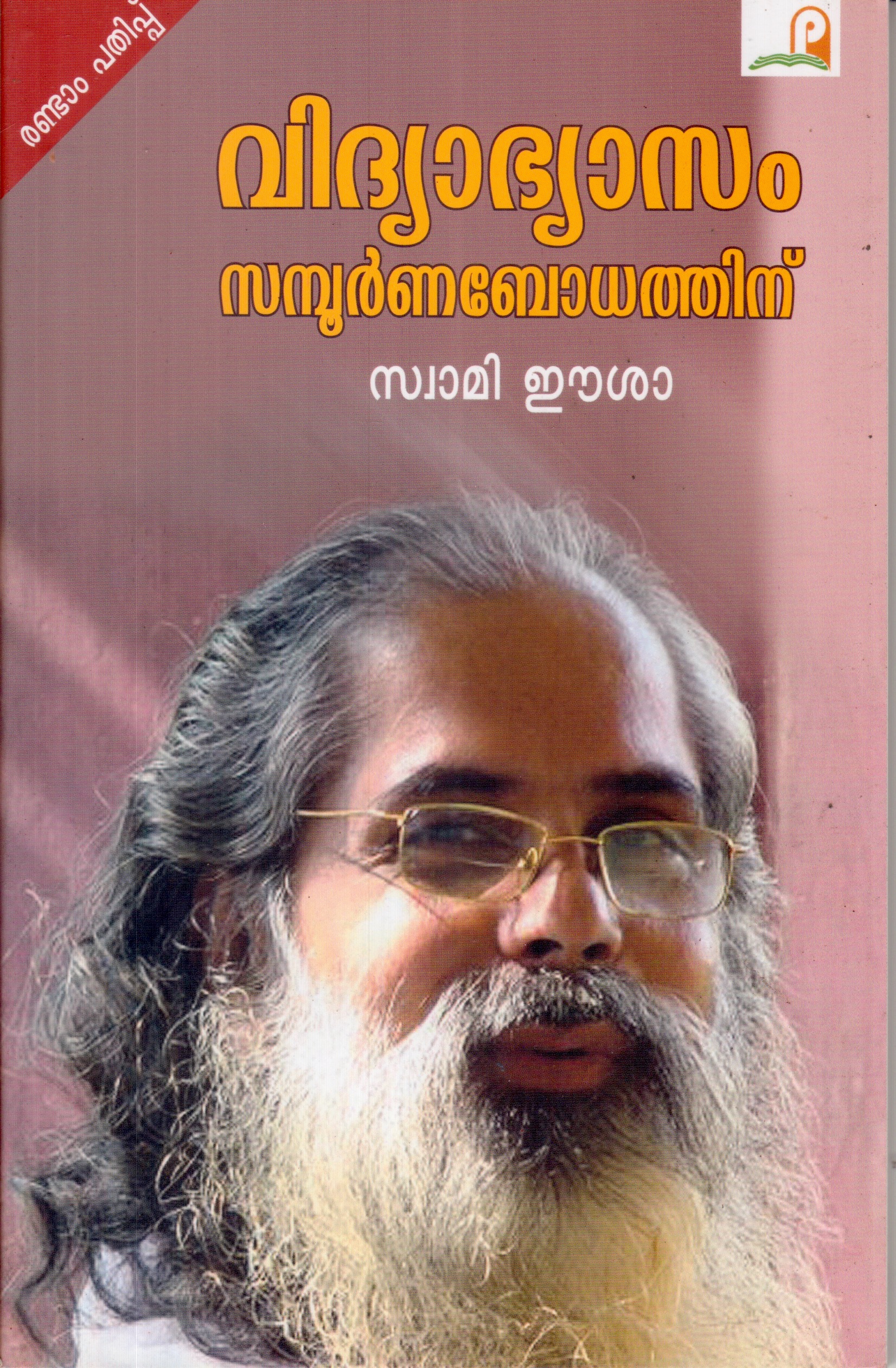 |
Vidyabhyasma Sampoornamaya Bodhathinu (Education for Total Consciousness) Published by Priyadarshini Publications 2013 Original Malayalam edition Swami Isa describes his educational philosophy and the methodology of teaching in this beautiful text which is sure to inspire educators, parents, and anyone who is concerned with bringing up the future generations. Swamiji reveals high philosophical concepts about knowledge and its origin; the role of the student, role of the teacher, and much more. Prepare to be inspired! Order it: office(at)ivpt.org |
Thought of the Week
“Freedom takes birth inside thought.”

